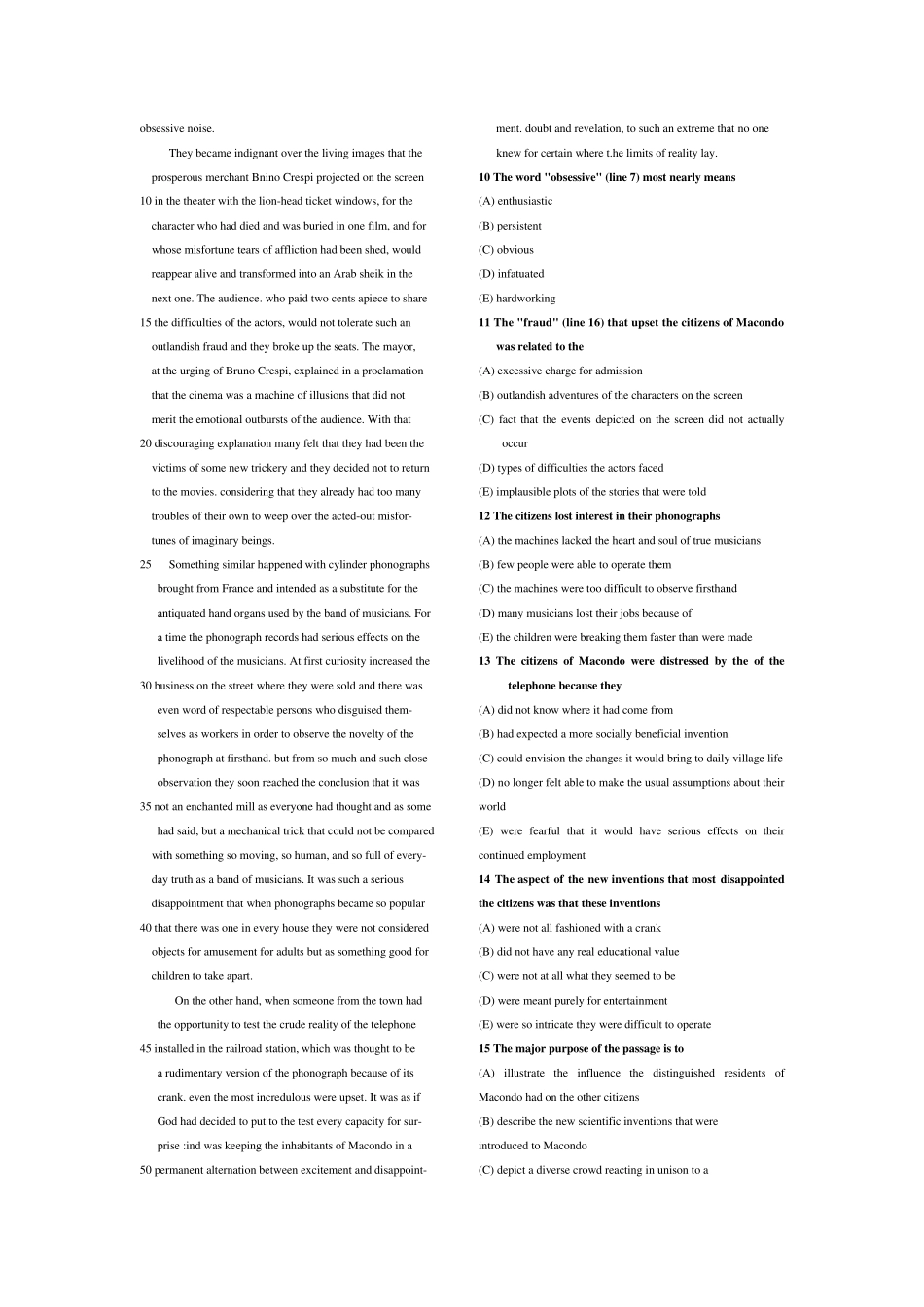3 The passages below are followed by questions based on their content; questions following a pair of related passages may also be based on the relationship between the paired passages. Answer the questions on the basis of what is stated or implied in the passages and in any introductory material that may be provided. Questions 6-9 are based on the following passages. Passage 1 The eighteenth-century botanist Carolus Linnaeus' enormous and essential contribution to natural history was to devise a system of classification whereby any plant or animal could be identified and slotted into 5 an overall plan. Yet Linnaeus himself would probably have been the first to admit that classification is only a tool. and not the ultimate purpose. of biological inquiry. Unfortunately, this truth was not apparent to his immediate successors, who for the next hundred 10 years were to concern themselves almost exclusively with classification. Passage 2 I am a heretic about Linnaeus. Ido not dispute the value of the tool he gave natural science, but I am wary about the change it has effected on humans' relationship 15 to the world. From Linnaeus on. much of science has been devoted to sorting masses into individual entities and arranging the entities neatly. The cost of having so successfully itemized and pigeonholed nature is to limit certain possibilities of seeing and apprehending. For 20 example. the- modem human thinks that he or she can best understand a tree (or a species of tree) by examining a single tree. But trees are not intended to grow in isolation. They are social creatures. and their society in tum supports other species of plants. insects. birds. mammals. and micro- 25 organisms. all of whi...


